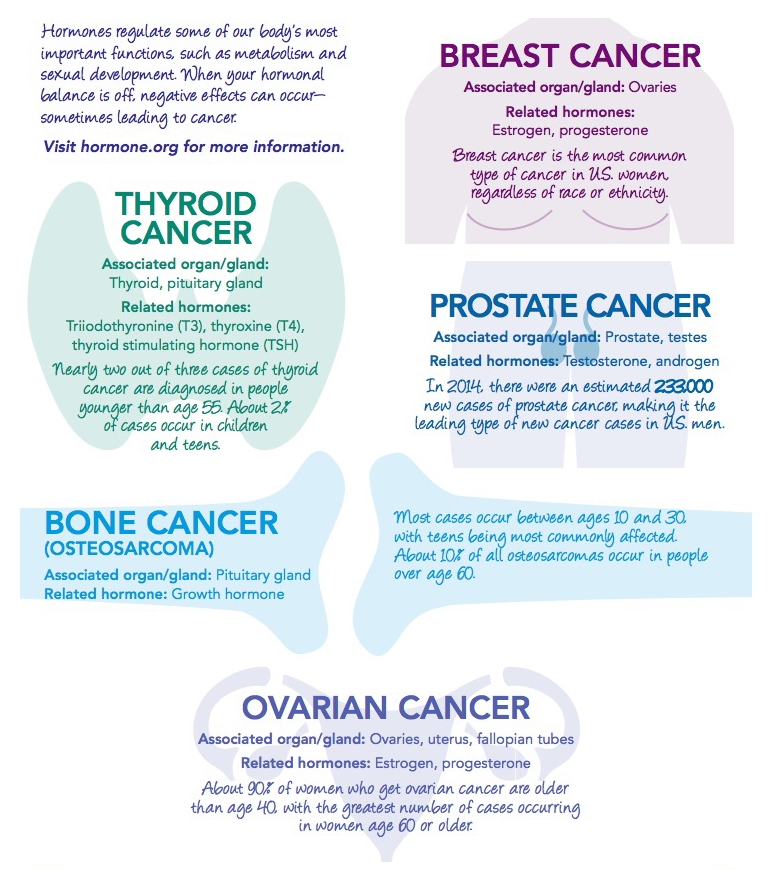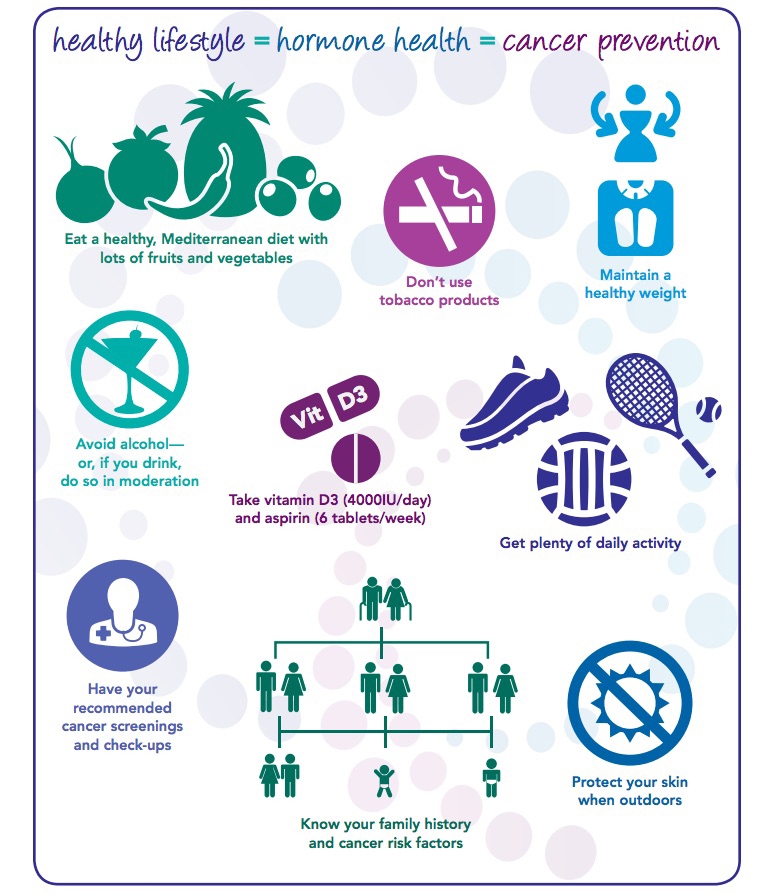Hormones and Cancer: How to Keep Your Body in Balance
When most people think of hormones, they think of mood swings, sweating, or tears. But hormones play a much larger part when it comes to cancer, because uncontrolled hormones increase your risk of cancer. Our hormones mean business. Listen to your body, and treat your body well.
A hormonal imbalance may contribute to the following cancers:
· Thyroid Cancer
· Breast Cancer
· Prostate Cancer
· Bone Cancer
· Ovarian Cancer
We want our hormones to balance and our bodies to thrive. You can start with a few lifestyle changes to get some balance in your body:
· Avoid tobacco product use
· Enjoy a diet with fresh fruits and vegetables
· Maintain a healthy weight
· Consume alcohol in moderation
· Get in your Vitamin D – try to take 4,000 IU a day of vitamin D3
· Take 6 aspirin tablets a week
· Get activity daily
· Know your family's risk factors and cancer history
· Use sun protection
· Have all screenings and checkups.
Which hormones increase or decrease your cancer risk?
Hormones That May Increase Cancer Risk When They Are Elevated
• LGF-1 • Insulin • Unbalanced Cortisol • Estadiol • C4 Hydroxyestrone • C16 Hydroxyestrone • Prolactin • Testosterone • Growth Hormone • Cortisol
Hormones That May Decrease Cancer Risk
• Progesterone • Melatonin • Normal Thyroid Function • Estriol
If you are dealing with a cancer diagnosis and your oncologist is talking about hormone treatment or therapies, listen closely, ask questions, and take notes if possible. Hormone therapies can change the amount of hormones the body produces, usually lowering the levels of particular hormones. It might block the action of hormones, or reduce the level of the hormone that the body makes. These treatments can reduce the chance of a cancer coming back or it may stop or slow the growth of a cancer for some time.
Thrive with help from your healthcare providers, a healthy lifestyle, and support from your GHC cancer coach.


